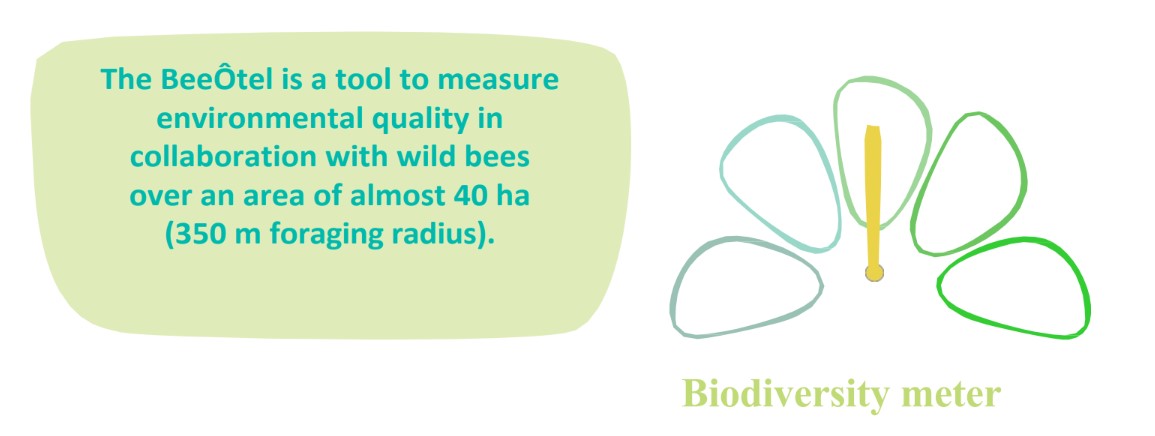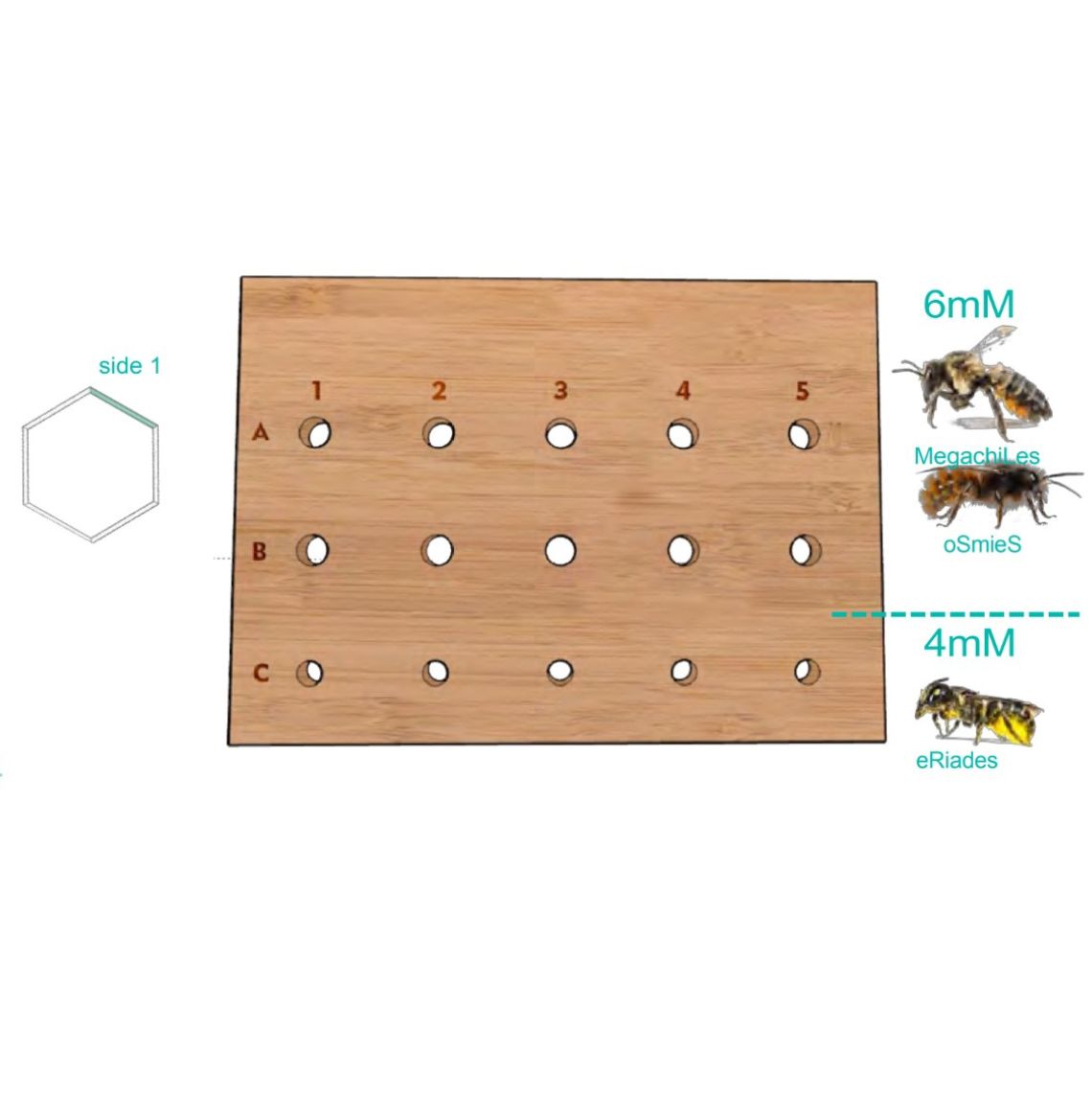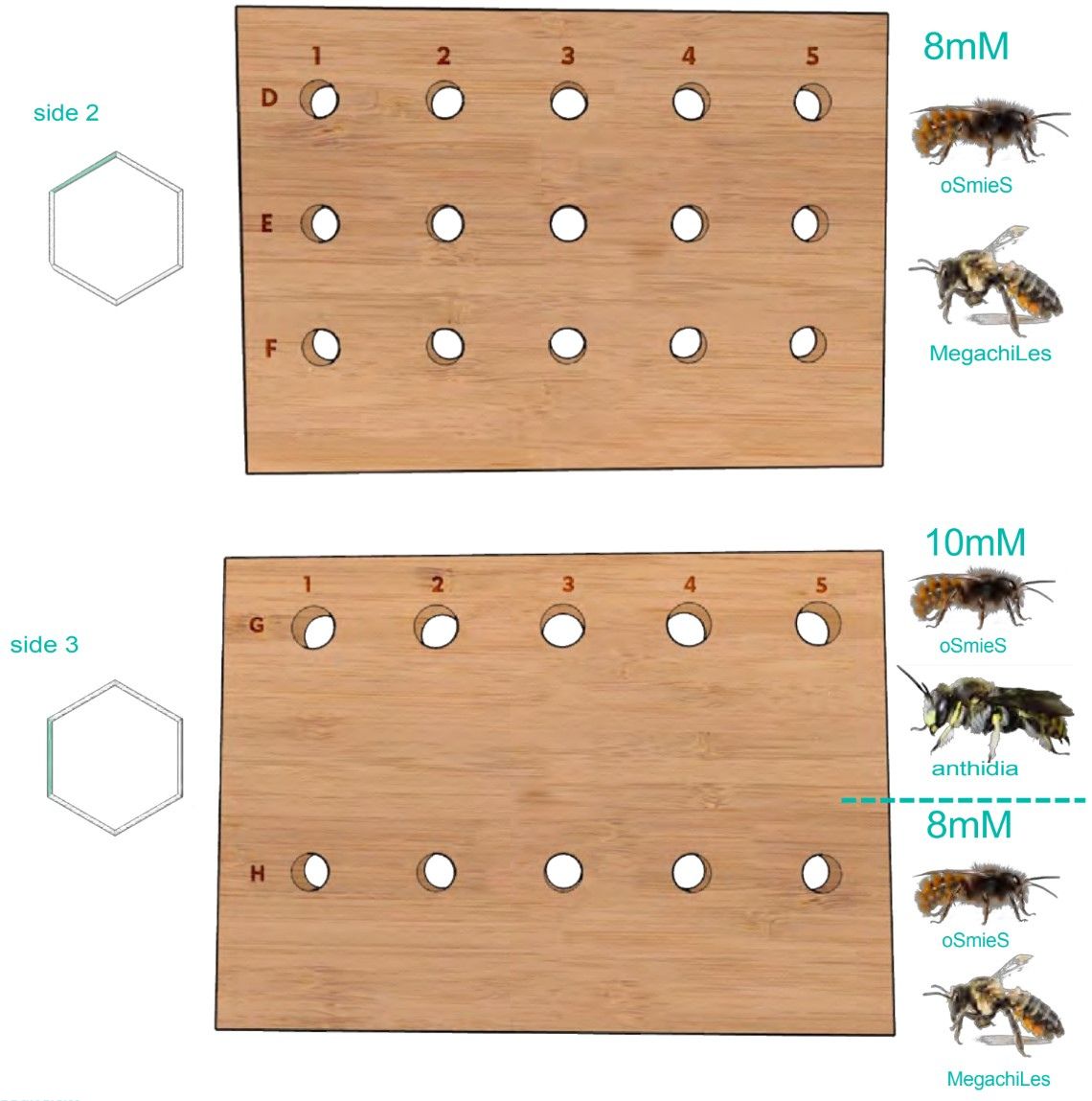This project is supported by the Colruyt Group sustainable savings programme

As part of the Colruyt Group sustainable savings programme [Save points to support environmental and climate charities | Colruyt Group], BeeOdiversity has planted a total of over 30,000 m² of flower meadows, providing a larder for pollinating insects, which play an essential role in preserving nature.
BeeÔtels have been installed to monitor the impact of these plantations. But what are they and how do they work?





What is a BeeÔtel?

The BeeÔtel is the insect hotel developed by BeeOdiversity. Unlike honeybee hives, the BeeÔtel is home to solitary bees.
Wild bees are a large group, numbering almost 400 species in Belgium, and are morphologically and behaviorally diverse. The vast majority are solitary and harmless.
The device is likely to attract megachilids, a family of bees that are often stocky and hairy! This family includes megachiles (leafcutter bees), osmies (mason bees), anthidies (cotton bees) and small herid bees (resin bees).
Identifying wild bees down to species level is difficult and time-consuming, sometimes down to the microscopic details of their bodies. However, other clues allow us to identify the species that have created their nest in the BeeÔtel, such as the type of operculum with which the cavity has been closed.
What is the purpose of the BeeÔtel?
The BeeÔtel serves a scientific purpose as well as an educational one for the general public.
The BeeÔtel occupancy rate provides information on the abundance and diversity of wild bees in your community. It is also an excellent indicator of the quality of the surrounding biodiversity for pollinators.
Help preserve biodiversity with the BeeÔtel?
What can you do?
1. Take a photo of the 3 sides of the BeeÔtel that contain holes (see below).
2. Send us your photos to the following e-mail address: beeotel@beeodiversity.com


Thank you for your contribution, which goes a long way towards preserving biodiversity.
The results of bee abundance measurements on this site will be available on this page from November.